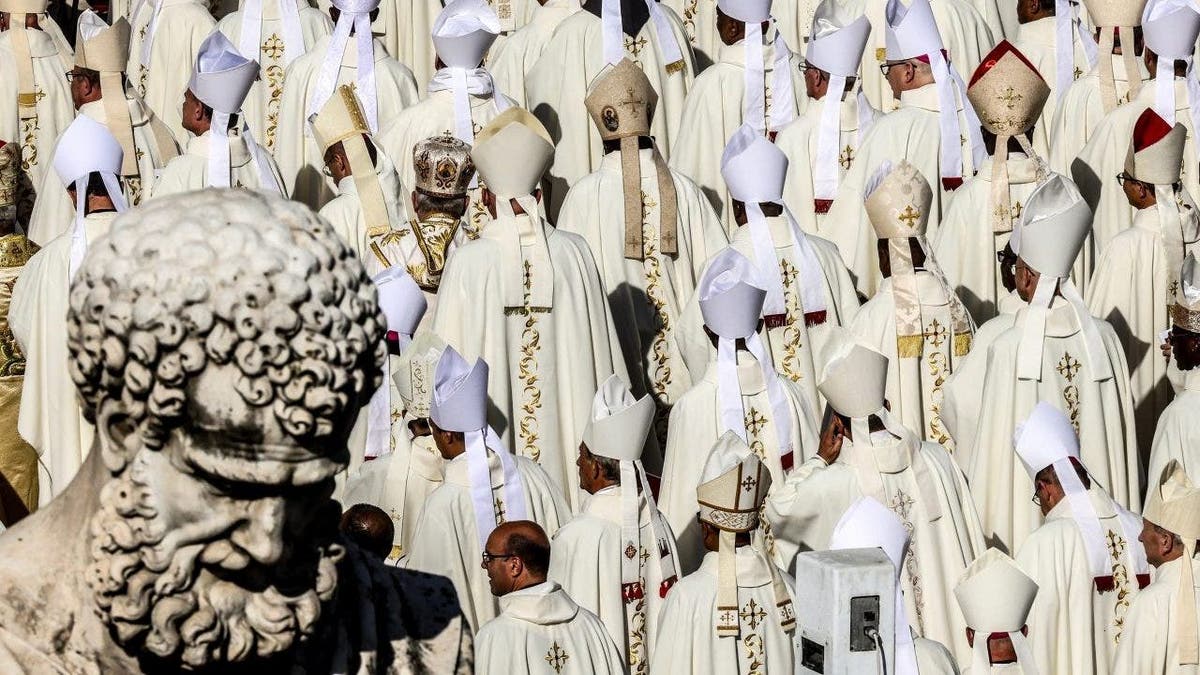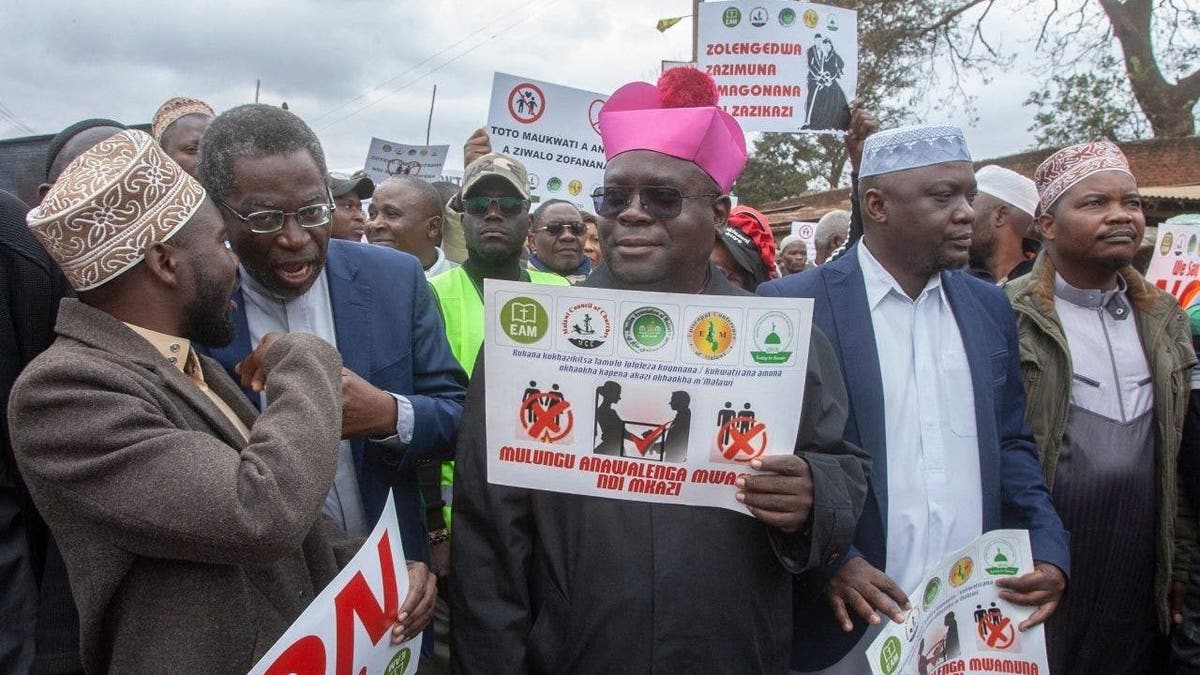The Vatican has clarified that each bishop is free to either adopt or ignore its recommendation for “spontaneous” blessings of people in a same-sex relationship.
Cardinal Víctor Manuel Fernández, prefect for the Vatican’s Dicastery for the Doctrine of the Faith (DDF) and author of the controverstial Fiducia Supplicans, told Spanish news outlet ABC that bishops must make a “discernment” for themselves whether to implement the sanctioned blessings.
Fernández affirmed that the guidance does not diverge from traditional Catholic doctrine, saying “if the text is read with an even disposition, it can be seen that it supports with great clarity and simplicity the perennial Catholic teaching on marriage and sexuality,” according to translations from Catholic News Agency.
POLISH, UKRAINIAN BISHOPS JOIN GROWING COALITION AGAINST VATICAN’S SAME-SEX BLESSINGS DOCUMENT
Víctor Manuel Fernández, Prefect of the Dicastery for the Doctrine of the Faith, poses during the courtesy visits to the New Cardinals at the Apostolic Palace in Vatican City, Vatican. ((Photo by Franco Origlia/Getty Images))
However, Fernández expressed understanding that in many contexts a blessing could be misunderstood or overly scrutinized, causing confusion or scandal.
Speaking of African bishops who have rejected the idea of ever blessing a person in an open homosexual relationship, Fernández expressed sympathy that in many countries “there is legislation that penalizes with prison the mere fact of declaring oneself to be gay, imagine [what a] a blessing [would do],” according to CNA.
The prefect added that “it’s proper for each local bishop to make that discernment in his diocese or in any case, to give further guidance.”
CATHOLIC BISHOPS AROUND THE WORLD PUSH BACK ON BLESSINGS FOR PEOPLE IN SAME-SEX RELATIONSHIPS

Cardinals, bishops and prelates attend the opening Mass of the XVI Ordinary Assembly of the Synod of Bishops in St. Peter’s Square in Vatican City. ((Photo by Alessandra Benedetti – Corbis/Corbis via Getty Images))
“Fiducia supplicants” reaffirmed the Catholic Church’s inability to change the sacrament of marriage, which it defines as an “exclusive, stable, and indissoluble union between a man and a woman, naturally open to the generation of children.”
It did, however, carve out allowances for “spontaneous” blessings given to individuals in same-sex relationships who are seeking to lead more moral lives. It also clarifies that the “union” between two members of the same sex cannot be blessed — only the individuals themselves.
Episcopal conferences in African nations have been the most vocal prelates opposed to the implementation of “Fiducia supplicans” — the document which approved pastoral blessings given to people in same-sex relationships under strict parameters.
CLICK HERE TO GET THE FOX NEWS APP

Archbishop George Desmond Tambala of the Lilongwe Catholic Archdiocese (C) flanked by a Muslim Sheikh (L) and other religious leaders, carries an anti-LGBTQ placard during nation-wide marches organised by churches in Malawi against same-sex marriages in Lilongwe. ((Photo by Amos Gumulira / AFP) (Photo by AMOS GUMULIRA/AFP via Getty Images))
“In order to avoid any pastoral confusion and ambiguity as well as not to break the law of our country which forbids same sex unions and activities, and while listening to our cultural heritage which does not accept same sex relationships, the Conference guides that the Declaration from the Dicastery for the Doctrine of the Faith of December 18th 2023 concerning the blessing of same-sex couples be taken as for further reflection and not for implementation in Zambia,” said the Zambia Episcopal Conference.
The Episcopal Conference of Malawi wrote in a letter, “to avoid creating confusion among the faithful we direct that for pastoral reasons, blessings of any kind and for same sex unions of any kind are not permitted in Malawi.”
The majority of bishops in the United States have vouched for the accuracy of the document’s language, saying it is theologically in line with church teaching and tradition.